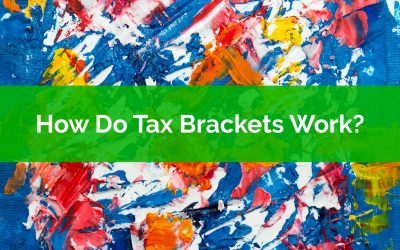Thank you for subscribing!
We can’t wait to send you our next post, you’re going to love it! In the mean time, check out our free resources.
Check out our latest blog posts…
Should You Make A Large RRSP Withdrawal Before The End Of The Year?
As we approach the end of the year, one strategic tax and gov. benefit opportunity to take advantage of is making a large RRSP withdrawal.
Making a large RRSP withdrawal before the end of the year can make sense in a few situations. If you find yourself in one of these situations, a strategic RRSP withdrawal can help reduce income tax and increase government benefits over the course of your plan.
Out of these three situations we’ll explore in this blog post, one situation happens before retirement and about 1 in 3 people will find themselves in this situation. The other two situations happen after retirement and can help avoid higher income tax rates later in retirement.
Is It Safe To Use Your HELOC As An Emergency Fund?
Is it safe to use your HELOC as an emergency fund? A typical emergency fund is between 3 months and 6 months of expenses, but that’s a lot of cash to have lying around!
Cash is the enemy of long-term goals. Holding too much cash makes it more difficult to achieve long-term goals like retirement. The more cash-on-hand there is, the lower the average investment return.
Holding some cash is good. A certain amount of cash-on-hand protects us against unexpected emergencies like a job loss, a disability, a health emergency etc. etc. But holding too much cash is bad.
For homeowners with a certain amount of home equity there is another option. This option allows homeowners to decrease the size of their emergency fund and put more into RRSPs and TFSA sooner. This can provide more investment growth and potentially a reduction in income tax and an increase in government benefits.
Homeowners with a certain amount of home equity could choose a hybrid option, with a smaller amount of cash-on-hand but leaning on a Home Equity Line of Credit (HELOC) for larger emergencies.
But is this hybrid option safe? Is it safe to use your HELOC as an emergency fund? Let’s take a look at why, and why not, to use your HELOC as an emergency fund.
How Do Tax Brackets Work? What Is Your Tax Bracket?
How do tax tax brackets work? How do you figure out your tax bracket? These are important questions, especially when you’re trying to make the most of your money.
Figuring out your tax bracket can be very helpful when making personal finance decisions. It can help you decide which type of account to use, for example the TFSA or the RRSP. It can also help you understand how much you’ll keep after receiving a raise. It can help you understand how much tax you’ll pay on any extra spending in retirement. It can also help you understand how large your tax refund will be after making an RRSP contribution.
Understanding how tax brackets work, and what tax bracket you’re in, will help you make smarter financial decisions.
But tax brackets can be confusing, they can feel like a real mess of numbers. And even when you understand how tax brackets work there is something called your Marginal Effective Tax Rate (or METR) that can add to the complexity. This is when we look at both income tax rates plus government benefit clawback rates.
Your METR is more complex and will change over time depending on number of children, partners, age etc. Looking at Marginal Effective Tax Rates can expand the number of tax brackets to 10-20+ and we’ve got a few examples below.
In this post we’re going to show you how tax brackets work with a few visual examples. We’ll break down a few different income levels into their different tax brackets.
We’ll also talk about tax deductions and tax credits and how they affect (or don’t affect) your tax bracket. Lastly, we’ll touch on marginal effective tax rates for a few different situations like one child, two children, and retirement.



